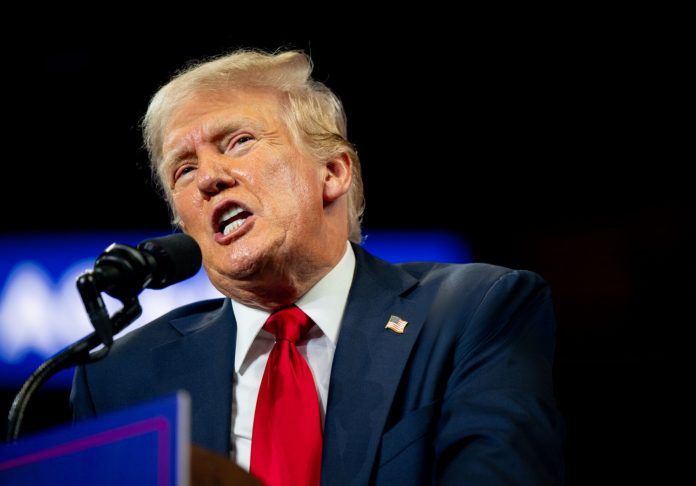Donald Trump is reshaping the conversation around the U.S. automotive industry with bold promises to attract foreign automakers to build their vehicles on American soil. During a speech in Savannah, Georgia, the Republican presidential candidate proposed tax incentives for companies willing to manufacture their cars in the U.S. while threatening significant tariffs on those who choose to import their products.
In his address, Trump outlined his vision of slashing the corporate tax rate from 21% to 15% for companies producing domestically. “I want German car companies to become American car companies. I want them to build their plants here,” he declared, setting the stage for his broader appeal to global automakers.
Trump’s pitch to foreign car manufacturers, if he returns to the presidency, is straightforward: “I will give you the lowest taxes, the lowest energy costs, the lowest regulatory burden. And free access to the best and biggest market on the planet,” he said. However, this offer comes with a condition: automakers must build their products in the U.S. and hire American workers. Failure to comply would result in substantial tariffs on their imported vehicles.
One of Trump’s most aggressive measures involves imposing a 100% tariff on every car imported from Mexico. This would directly impact automakers like General Motors, Ford, and others that have established manufacturing operations in Mexico to capitalize on lower labor costs. Trump argues that this move would protect American jobs and bring wealth back to the U.S., claiming, “We’re going to take other countries’ jobs… We’re going to bring thousands and thousands of businesses and trillions of dollars in wealth back to the good old USA.”
While Trump’s proposal targets foreign automakers, several German companies, such as BMW, Mercedes, and Volkswagen, already have substantial manufacturing operations in the U.S. For instance, BMW’s Spartanburg plant produces much of its SUV lineup and employs 11,000 people. In 2023, the plant was the largest automotive exporter in the U.S. by value, shipping approximately $10.1 billion worth of vehicles. Expanding their U.S. production could lead these companies to scale back operations in Germany, which might impact their overall efficiency.
Interestingly, Trump also extended his invitation to Chinese automakers, suggesting they could enter the U.S. market—on the condition that they build their vehicles locally and employ American workers. “We’re going to give incentives, and if China and other countries want to come here and sell cars, they’re going to build plants here,” Trump remarked.
This proposal marks a significant shift in how Trump envisions the future of the U.S. automotive industry, emphasizing domestic production, job creation, and the potential reshoring of foreign manufacturing to American soil.



